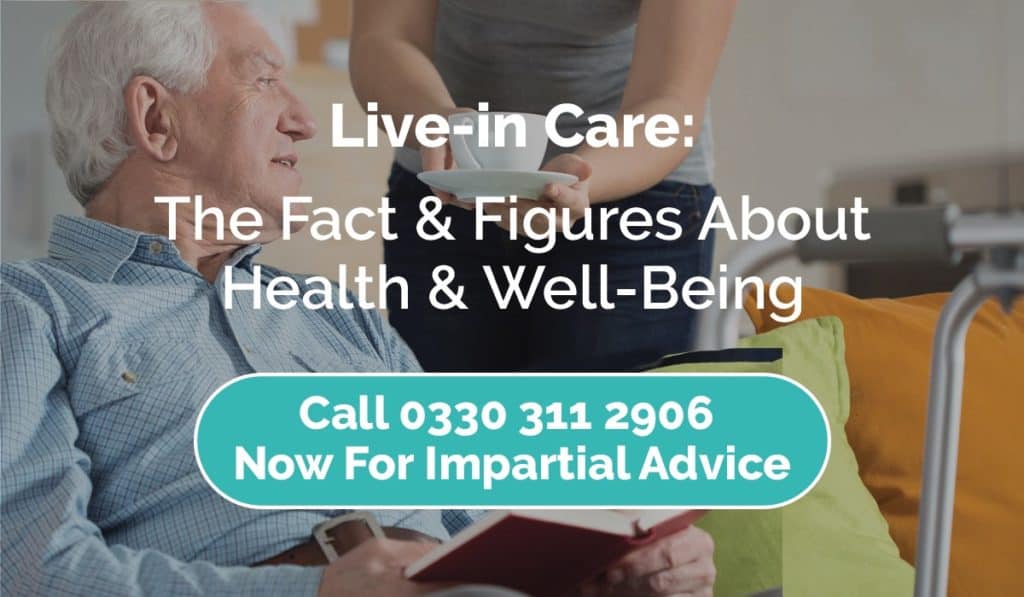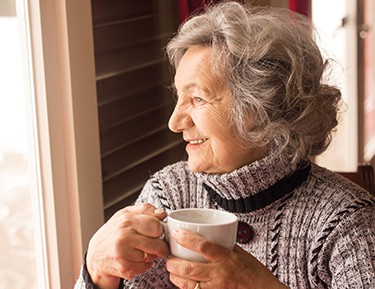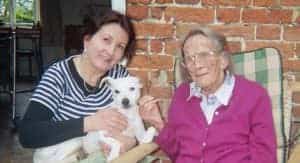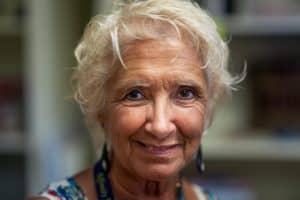Post-operative care in the home can be highly beneficial for older people recovering from surgery. Read about how it could help you recuperate more quickly.
Health problems, declining mobility and aging bodies could lead to a requirement for surgery for many elderly people. Here, we look at the common surgical procedures performed on our aging population and how to optimise their recovery with the most appropriate form of care.
Common Surgeries In Older People
According to the Royal College of Surgeons, the most common reason for hospitalisation and surgery in older people is hip fracture and this is said to cost an average 1% of the entire NHS budget. Not everyone who suffers a hip fracture will do well afterwards and many need extensive aftercare including physiotherapy and painkilling medication. Long term care is often needed.
Knee replacement is another common reason for over 50s to need surgery followed by aftercare as they recuperate and work their way back to fitness. The older the person is the longer it takes to recover from this type of procedure due to various factors including loss of muscle tone and inappropriate diet. It is estimated by the National Joint Registry that the numbers of hip and knee replacement surgeries are rising year on year and are expected to increase by 40% over the next 25 years. Major surgery such as this will need extensive rehabilitation at home including exercises and walking aids and this can be made easier when the patient receives care at home.
Pacemaker implantation is also more common than you may imagine and around 40,000 people in the UK will need to go through this on average every year. Other common forms of heart surgery include having stents fitted to widen narrowed arteries.
Many older people are affected by failing eyesight caused by cataracts and this is something which can severely impact quality of life for those who enjoy reading or watching TV. Cataracts affect mainly the over 60s and appear in one or both eyes. Fortunately, cataract surgery nowadays is usually done without the need for a general anaesthetic and is largely successful.
Older people can be disproportionately affected by cancers and abdominal problems like gallstones or ulcers and these issues are also generally treated by surgery.

The Hurdles To Optimal Surgical Recovery
Surgery recovery can be physically and mentally challenging. Great rehabilitation can help a person heal quicker, and in a way that doesn’t negatively impact their mental health. Getting better in the surroundings we know and love with professional help can help you to get back to normal day-to-day life as quickly as possible and is often more successful than recuperation in the hospital or in a residential care home. Recovering from any form of surgery or other medical procedure is undoubtedly made more difficult by the restrictions of old age and precise care instructions must be followed to the letter once the patient is back home if they are to make a full recovery. A live in carer could help to make this happen.
Pre- Operative Frailty Concerns
Pre-operative frailty – where the older patient has pre-existing conditions which are an indication of how well they recover from surgery – has been shown to contribute towards a loss of functional independence at approximately 12 months post-op. On the other hand, those who were less frail – who had good levels of fitness and cognitive ability relative to their age – were shown to make a better recovery and return to independence over the first 12 months after surgery.
What studies have also shown is that communication between patient, care givers and medical professionals is essential prior to any hospital admission in order for health professionals to recognise any risks to the patient’s long-term physical and mental health. This, of course, assumes that the patient has a family support network in place. However, when families have their own set of pressures to deal with on a daily basis – work, looking after children and taking care of their own household – it is not always possible for family members to give an elderly loved one the daily care necessary. When care is given by family it is often one particular member to whom the burden falls and they can soon become stressed, overwhelmed and ill themselves. This is especially true if they are trying to care for a loved one recovering from hospital surgery.
Compounding the stress for families is worry around finances through a family care giver not being able to work full-time, pressures of keeping an eye on children’s education and not being able to spend enough quality time together as a family.Live-in care can help to take the pressure off and restore family life back to normal.
In-Home Care For Post-operative Recovery
There have been many studies into how surgery and its aftermath affects older people, which clearly show that post-operative frailty is an issue which must be monitored carefully by family and carers.
Following initial discharge from hospital there will usually be follow-up appointments and visits from health care professionals where post-operative treatment such as wound dressing or physiotherapy is needed. This is the relatively easy part. It is when this period comes to an end that the older patient can start to deteriorate depending on factors like frailty and co-morbidities – other health issues which can hinder recovery.
Surgery and a hospital stay can make anyone feel vulnerable as well as physically weak and older patients often report a loss of confidence when they can’t continue with normal life as before. Many report a lack of energy and motivation with fatigue and loss of appetite soon setting in. The vicious circle of low energy, post-operative pain and a lack of support from busy family and friends can soon lead to depression and a worsening of existing health issues such as diabetes or heart disease. Quality of life and functional independence begins to suffer.
It is well known that patients do much better when they are discharged from hospital back to their own homes if they have a support network to help them. Where family members are unavailable to help, live-in care helps the patient to recover faster by taking care of daily needs and helping with physical tasks and medication.
The Benefits Of Live In Care For Those Feeling Lonely Or Afraid After Surgery
Often, recovering from surgery is as much about recovering mentally as well as physically. It can take older people far longer to adjust and recover after surgery and the feelings this elicits vary hugely. There is no one size fits all answer to helping other than to provide them with support and assistance that meets their individual needs. This needs someone dedicated to them, someone who understands and can provide for their personal feelings. Loneliness or being afraid after surgery is commonplace and this is something live-in carers help combat. It may be that they become isolated in the first few days after surgery and become afraid to take steps to get back to the social status quo they perhaps enjoyed before as they recover. A companion carer can make this transition easier or become a new friend suited to the way you now live.
Older people can see surgery as the beginning of or compounding their loss of control over their lives, causing fear for their future. If the surgery impacts their mobility, they may worry about becoming lonely, how they will cope. Age UK reports that loneliness is as unhealthy as obesity or smoking 15 cigarettes a day. Stress and anxiety also contribute to high blood pressure and loss of mental capacity are exacerbated when mental wellbeing is ignored. Live-in carers provide a sense of security, can become the much-needed friend who is always on hand, and facilitate activities and gatherings that take away loneliness to meet the needs of the individual. Residential care does not offer this personalised approach to allaying fear and loneliness, a major cause for concern after surgery.
Live In Carers Keeping Family In The Loop
With Live-in care becoming a choice made by more, maybe because families are spread around the country or committed to work, the role of the live-in carer to keep the family informed is crucial. Live-in carers play a massive role in plugging the gap. They can be the link passing on information from doctors and medical experts or the patient’s voice to inform or express family feelings. They are the ones within the individual’s daily life and usually the first to spot changes in behaviour or recognise changes in progressive conditions. These critical changes that families may not see on visits or lack knowledge to identify. The live-in carer can keep the family updated, offer advice and support for the family or assistance where needed to ensure the older person’s wellbeing recognises all of their needs appropriately.
A live-in carer can be a much-needed voice to family. They link families to have better insight into their loved ones care and wellbeing, older people can feel a burden or silent on their loneliness and concerns. They have time to support family liaisons in their loved ones care. They also understand the challenges facing older people and become the voice of the patient and a friendly, knowledgeable link between family and healthcare professionals.
Support A Live In Carer Can Provide
In-home carers are specially trained to keep everything as calm and focused as possible for clients following an operation. They instantly provide a wide range of support in the home with 24/7 live-in care, including fulfilling tasks such as:
- Coordinating a medication regime
- Helping with medication collection and administering
- Wound care
- Medical team coordination (nurse visits etc)
- Helping clients follow nutritional advice
- Helping clients following lifestyle advice
- Physiotherapy
- Suggesting mobility aids and home adjustments to help with recovery
- Maintaining the house and garden whilst you’re unable to
- Providing pet care whilst you are unable to
- Changing catheters, colostomy bag and stoma care, and other areas of more detailed physical care
- Providing companionship whilst you might be unable to get out much
- Providing care outside of the house whilst you visit friends or family members
With your insight, and the insight of your medical team and your family, you will be able to create a plan that suits your needs. This will leave you free to focus on recovery.
Avoiding Declining Health Following An Illness Or Injury
A Live-in Care Hub report found that every minute, six people aged 65 and over suffer a fall. One of the most devastating injuries that occur as a result of a fall is breaking a hip. Shockingly, a month after suffering a hip injury, 1 in 12 people will die and over half never return home. Falls also account for 30% of the reasons elderly people have to visit A&E.
With live-in care, not only is a person less likely to suffer a fall in the first place, but the well-rounded support provided following illness or injury can help to prevent their health going downhill quickly afterwards.
A carer will focus on recovery and getting their clients back to health as quickly as possible. All too often a person may return home after a hospital stay, and struggle to regain their independence. They might feel depressed because their abilities are different, they may feel they will never be mobile again, they may struggle to adjust to their new way of life. A carer provides physical support so that medically, a person has the best chance of recovery. In addition, they provide the emotional support and hope a person needs to want to keep going, to believe in a reason to get up every day and face their challenges.
A quicker route to recovery
Anyone who has surgery of any kind will agree that the quickest way to a full recovery is to be at home. When you have professional in-home care you are more likely to be comfortable and to continue with any rehabilitation programmes. The cost of short term or long term care at home therefore needs to be factored in to your post-surgical plans.
Help with funding at-home care
Care at home is probably less expensive than you’d imagine especially when compared to the cost of residential care homes. Funding can be taken care of in one of four ways depending on the length of time care will be needed for and these are:
- Local authority funding, following a needs assessment
- Continued healthcare funding, provided by the NHS after a needs assessment
- Claiming benefits like Personal Independence Payment, council tax reduction, attendance allowance
- Private means from savings, investments or annuities.
In-home care for the elderly when recovering from surgery could be a fantastic addition to your rehabilitation plan, helping you get back to health as quickly as possible, no matter what your age or ailment.





